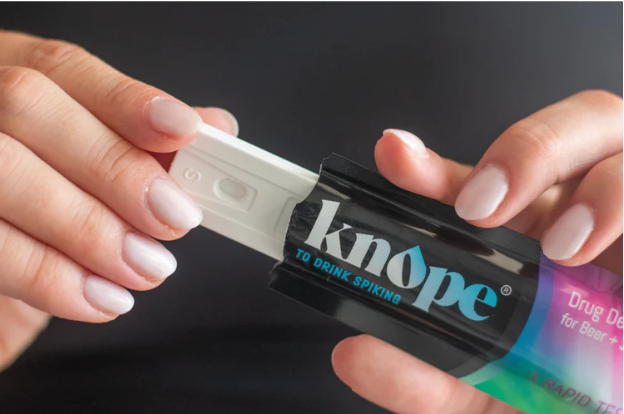
|
Getting your Trinity Audio player ready...
|
In ancient Greek and Roman Kingdoms, the monarchs always had food tasters known as edeatroi and praegustatores; their main job was to taste the food or drink of the monarch for poison, which was usually intended to sedate or even murder the monarch. Over the years, this role has become redundant. Still, the issue of drug-facilitated crime has evolved from date rape to theft, these assaults often enabled by spiked drinks disproportionately affect women, particularly on college campuses, clubs and several public gatherings with thousands of victims.
The life of Danya Sherman, a former junior at George Washington University, took a different turn when she experienced this nightmare firsthand.
“In the summer of 2016, while studying abroad in Spain, my friend drugged and assaulted me. It was the first time I actually became aware of the issue, and it became very personal,” she told WTOP News.
Instead of staying silent, Sherman turned her trauma into transformative innovation. Sherman enrolled in a course she didn’t know would transform her life for good. The Women’s Entrepreneurial Leadership course mandates students to develop a business that will be eligible for the university’s 2017 New Venture Competition.
She turned her pain to purpose by creating KnoNap, which is simply a Napkin that knows when a drink is spiked. With just a few drops of the drink on the napkin, it can detect if the drink has been tampered with by changing colours.
“Our napkin tests for a class of drugs called benzodiazepines. Those include Rohypnol, Xanax, Valium the drugs that are commonly used on and around college campuses as rape drugs,” she stated.
According to The Center for Forensic Science Research & Education, “the number of victims of rape or sexual assault reported to law enforcement agencies in the United States increased from 150,420 in 2014 to 240,000 in 2015.2 Alcohol and drugs have historically been linked with high rates of sexual assault, especially between college students.”
A large number of substances can cause incapacitation through either their cognitive or psychomotor effects, leading to non-consensual sexual contact.
KnoNap is to the ordinary person what the food taster is to the ancient Greek and Roman Monarch, the product which “tests for at least 26 of 40 most commonly used drugs as rape drugs” brings innovation to the marketplace as it has only one competitor called DrinkSafe, which tests for just two drugs: ketamine and GHB.
Sherman also stated that,
“In the development of a detection device for rape drugs, our aim was to ensure the tool was discreet, portable, gender-inclusive, and adaptable to various social environments. The problem of drug-facilitated assault is not confined to specific locations. It has the potential to impact individuals from all walks of life, regardless of location , whether they are studying overseas, travelling across borders or within their own country, enjoying a drink at a local pub, or mingling at university gatherings.”
For a survivor like Sherman, this isn’t just about entrepreneurship but safety and justice, “I hope my company is able to push for social change, greater awareness of the issue, but, at the end of the day, empower individuals to be safer so that no one else has to say, ‘Me Too.”
“The Napkin that Knows” emerged as one of the winners of the 2017 New Venture Competition. This innovation has received seed funding from the university and more business help from Halcyon Incubator, which focuses on early-stage social ventures. Her company is now working with manufacturers, and a Kickstarter campaign is planned for spring. She said the napkin will be available for sale by the end of the year.
KnoNap is more than a product. It symbolises that innovation can be achieved when rooted in lived experience and a commitment to justice. By addressing the realities of gender-based violence with practical tools and transformative vision, Sherman’s work reminds us that safety is not a privilege, but a right. In every folded napkin lies the power to resist, reclaim, and redefine what it means to be SAFE.




